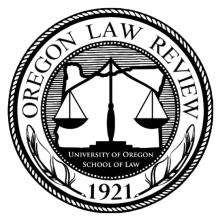Wednesday, July 5, 2023
Davis: Taxing The Cyborg
Tessa R. Davis (South Carolina), Taxing the Cyborg, 101 Or. L. Rev. 137 (2022):
What role will tax play in realizing utopia? Or bringing about a dystopian future? The tax policy of recent decades shares much of the blame for the profound economic inequality of today. Tax has ripple effects—how it responds to present challenges shapes the future. One contemporary challenge is understanding tax’s role in the nascent regulatory regime of gene editing and modification. CRISPR— Clustered Regularly Interspaced Short Palindromic Repeats—is a pattern of DNA found in bacteria. Paired with “Cas” genes to form a CRISPR/Cas system, CRISPR essentially functions as a “cut-andpaste” tool, enabling the targeted modification of a genetic sequence. This Article considers how tax is poised to respond to CRISPR and similar emerging medical technologies with both therapeutic and socalled enhancement applications.
Doing so exposes gaps in current tax law as applied to the body and biotechnologies. Some of these gaps are doctrinal; for example, the existing § 213 medical expense deduction doctrine is ill-prepared for the interpretive challenge CRISPR presents. But beyond the comparatively narrow doctrinal gaps lie more structural weaknesses. By imagining a world in which CRISPR gene editing is fully realized, we can better appreciate flaws in how current tax policy conceptualizes the foundational concept of a taxpayer’s ability to pay, as well as how it treats human capital. Taxing the cyborg, it turns out, will be no easy task.
https://taxprof.typepad.com/taxprof_blog/2023/07/davis-taxing-the-cyborg.html




